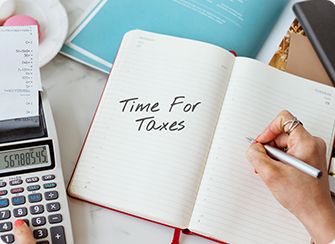
5 ways to fund your dream family vacation after retirement
Calculate how much to save
You first need to figure out how much you’ll have to spend. This will depend on the number of trips you’re planning, the length of those trips, and the places you wish to visit. Try to make detailed calculations covering not just flight and accommodation costs, but also meals, shopping, transfers etc. Calculating your expenses will help you identify how much you’ll need to save to meet those expenses.

Identify the right saving instruments
Once you have a clear idea of how much you need to save, you can look at different saving instruments. Saving through bank deposits is not the only way to create a travel fund. There are several other investment planning strategies which may help you earn optimal returns, such as investing in mutual funds.

Remember annuities
You should also consider tapping annuities to cover the costs of your vacation. They offer you fixed income from your retirement corpus. You can fund them initially with a lump sum or periodic payment and then receive pay-outs after the annuitisation period, to fund your trips.

Firm up your health insurance
Senior citizens must maintain robust health insurance, especially when travelling. This will protect your retirement funds from being depleted due to unexpected healthcare expenses, and keep them intact for travel. You can also get tax benefits on insurance plans under section 80D, for premium amounts up to Rs. 50,000 p.a.

Don’t neglect tax planning
Tax planning is a vital part of investment planning. All the income you receive from your investments is taxable. Good tax planning will ensure that the money you saved for your vacation won’t be depleted by tax payments. You could consider tax-saving investments like the Post Office Monthly Income Scheme, a government-supported scheme that offers good returns. The scheme has a 5-year lock-in period, with monthly pay-outs to fund your trips.

All the Mutual Fund investors have to go through a one-time KYC (Know Your Customers) process. Investor should deal only with the Registered Mutual Funds (RMF). For more info on KYC, RMF and procedure to lodge/redress any complaints, visit https://www.pgimindia.com/mutual-funds/ieid.
MUTUAL FUND INVESTMENTS ARE SUBJECT TO MARKET RISKS, READ ALL SCHEME RELATED DOCUMENTS CAREFULLY. Read more








